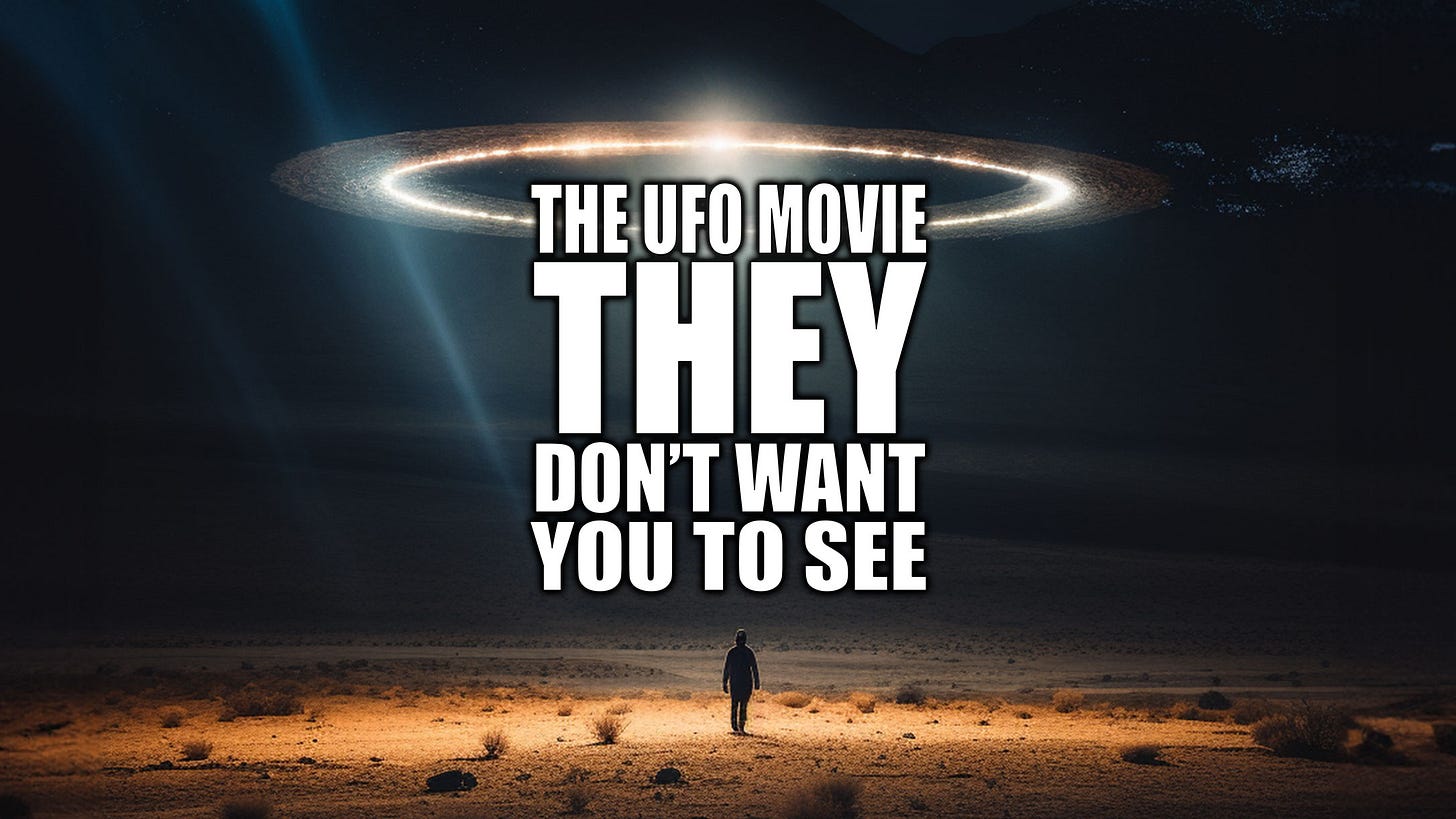Why I didn't include UFO personalities in The UFO Movie
Should a science film give a platform to the enemies of science, in pursuit of teaching a wide range of perspectives?
Thanks for reading my newsletter separating reality from bullshit in pop culture. Tuesdays are free to all; Thursdays are just for the lovely paid subscribers who make the whole thing possible!
Clearly it’s time to add a new FAQ to the web page for The UFO Movie THEY Don’t Want You to See, so I’m presently doing that. And that newest frequent question I’m getting is “Why didn’t you interview Steven Greer/Bob Lazar/David Grusch/David Fravor/Lue Elizondo/etc. etc. etc. for the movie?”
It’s a question I had never anticipated. Why on Earth would I have interviewed people who have no connection to the film’s subject matter?
Those guys are all UFO storytellers. Their thing is taking the UFO stories you’ve heard for years, retelling them, sometimes concocting new details for them, and presenting them all as proven cases of alien visitation to Earth. Whoopee. Something they and other UFO storytellers have been doing for 75 years. Just like the Bigfoot people, the ghost hunting people, the astrologists, the Nostradamus storytellers, and many others.
The UFO Movie, on the other hand (despite its tongue-in-cheek title) teaches astrophysics and astrobiology, topics that cover the reality of potential alien visitation, using the public interest in UFOs as a springboard to open the conversation. False UFO stories are completely orthogonal to that plot. Not only would they add nothing, they would substantially weaken the movie by adding confusing and conflicting misinformation.
Should a college primatology course bring in a Bigfoot expert to play animal noises he wrongly believes are Bigfoot?
Should a cardiology school invite a faith healer to lecture?
Should a math class feature a Bible expert who believes pi = 3.00?
Should a geophysics course give time to a Flat Earther?
Many of you are answering “Yes” to these questions, on the principle of exposing students to a range of ideas to help them learn to think better. While this sounds like a fine concept at first glance, it’s not, and there’s a reason universities don’t do it that way. Sure, expose students to alternate ideas, but do it in context. Teach math in the math class, and teach old false concepts in a class on the history of math.
I’ve got 8 reasons I wouldn’t allow an alien visitation advocate to contaminate the presentation I made in the film:
Misinformation and Disinformation: Inviting experts who peddle falsehoods can inadvertently legitimize misinformation and disinformation, making it more difficult for the audience to discern what is true and what is not. This risks presenting false narratives as equally valid to scientifically verified facts.
Undermining Educational Integrity: As an educational nonprofit we try to adhere to higher education standards of integrity, meaning we have a responsibility to provide education based on rigorous academic standards and evidence-based knowledge. Presenting false alternate versions as viable can undermine the integrity of the content (and my own credibility).
Confusion and Cognitive Overload: Exposing the audience to blatantly false alternate theories can create confusion and hinder their ability to understand the core principles of the subject matter. It may also lead to cognitive overload, where the effort to critically assess false claims detracts from learning the actual material.
False Balance: Presenting false theories alongside scientifically supported theories can create a false balance, suggesting that both sides of the argument hold equal weight when, in fact, they do not. This can mislead students into thinking that the validity of ideas is determined by the presence of debate, rather than evidence and consensus within the scientific community.
Ethical Concerns: There are ethical implications in presenting debunked or false theories as legitimate alternatives. This can be particularly harmful in fields related to health, environment, and social sciences, where misinformation can lead to dangerous real-world consequences. UFO, Bigfoot, and ghost misinformation are gateways to that same path.
Resource Allocation: Making movies is time consuming and expensive. In my career I’ll be lucky if I can do it a few times. I need to make the most of every donated dollar and every moment of screen time.
Potential for Harm: Presenting false narratives can perpetuate myths, stereotypes, or harmful ideologies — witness all the racist ideologies so deeply entangled with so-called “ancient astronaut” beliefs. This contributes to broader societal harms.
Critical Thinking Misconception: While exposing students to a range of ideas is crucial for developing critical thinking skills, it is also essential to ensure that those ideas are presented in context: facts with their evidence, and misinformation with how we know they are false (and this is what I did in the film). Critical thinking involves evaluating the quality of evidence, not just the ability to argue both sides of an issue.
I hope that clears it up. Considering that the advocates of alien visitation misinformation already command the lion’s share of programming in this genre, they are going to have to continue making do without any help from me.



Excellent article, Brian.
Prime example of why you’re exactly right not to go down that road: Bill Nye’s “debate” with Ken Ham. If anything, it made matters worse.